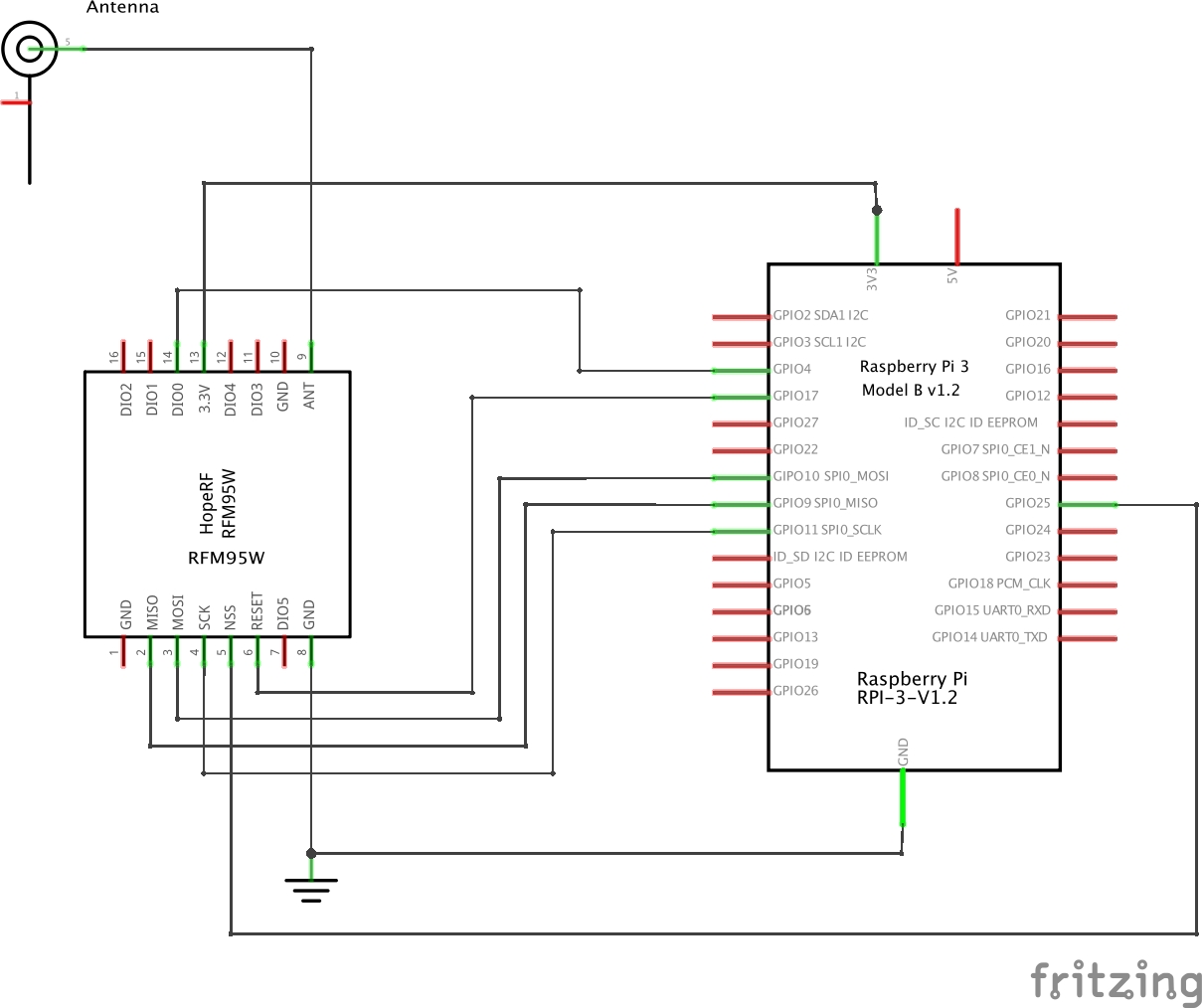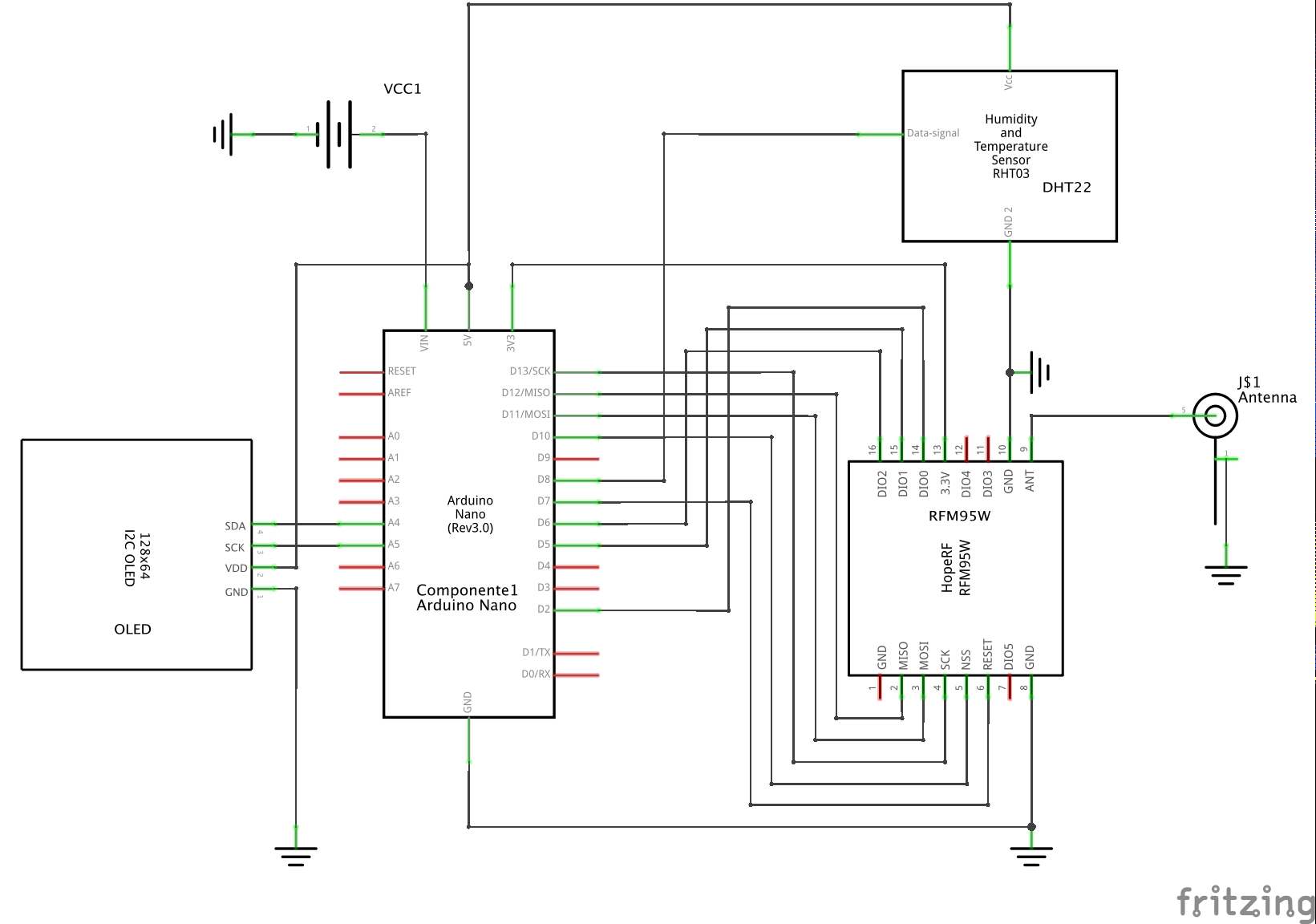#include <lmic.h>
#include <hal/hal.h>
#include "U8glib.h"
#include <DHT.h>
// OLED Display configuration
U8GLIB_SSD1306_128X64 u8g(U8G_I2C_OPT_NONE|U8G_I2C_OPT_DEV_0); // I2C / TWI
#define DHTTYPE DHT22 // DHT 22 (AM2302)
#define DHTPIN 8
DHT dht(DHTPIN, DHTTYPE);
// LoRaWAN NwkSKey, network session **** DO NOT USE AS IS. NEEDS TO BE CHANGED AS PER TUTORIAL ******
static const PROGMEM u1_t NWKSKEY[16] = { 0xFF, 0xFF, 0xFF, 0xFF, 0xFF, 0xFF, 0xFF, 0xFF, 0xFF, 0xFF, 0xFF, 0xFF, 0xFF, 0xFF, 0xFF, 0xFF };
// LoRaWAN AppSKey, application session key **** DO NOT USE AS IS. NEEDS TO BE CHANGED AS PER TUTORIAL ******
static const u1_t PROGMEM APPSKEY[16] = { 0xFF, 0xFF, 0xFF, 0xFF, 0xFF, 0xFF, 0xFF, 0xFF, 0xFF, 0xFF, 0xFF, 0xFF, 0xFF, 0xFF, 0xFF, 0xFF };
// LoRaWAN end-device address (DevAddr) **** DO NOT USE AS IS. NEEDS TO BE CHANGED AS PER TUTORIAL ******
static const u4_t DEVADDR = { 0xFFFFFFFF };
// These callbacks are only used in over-the-air activation, so they are
// left empty here (we cannot leave them out completely unless
// DISABLE_JOIN is set in config.h, otherwise the linker will complain).
void os_getArtEui (u1_t* buf) { }
void os_getDevEui (u1_t* buf) { }
void os_getDevKey (u1_t* buf) { }
//static uint8_t mydata[] = "LoRa Device Test";
static osjob_t sendjob;
// Schedule data trasmission in every this many seconds (might become longer due to duty
// cycle limitations).
// we set 10 seconds interval
const unsigned TX_INTERVAL = 10;
// Pin mapping according to Cytron LoRa Shield RFM
const lmic_pinmap lmic_pins = {
.nss = 10,
.rxtx = LMIC_UNUSED_PIN,
.rst = 7,
.dio = {2, 5, 6},
};
void onEvent (ev_t ev) {
switch(ev) {
case EV_TXCOMPLETE:
Serial.println(F("EV_TXCOMPLETE (includes waiting for RX windows)"));
// Schedule next transmission
os_setTimedCallback(&sendjob, os_getTime()+sec2osticks(TX_INTERVAL), do_send);
break;
default:
Serial.println(F("Unknown event"));
break;
}
}
void do_send(osjob_t* j){
char ValueT[5];
char ValueH[5];
int Temperature;
int Humidity;
// Check if there is not a current TX/RX job running
if (LMIC.opmode & OP_TXRXPEND) {
Serial.println(F("OP_TXRXPEND, not sending"));
} else {
// Get Temperature
Temperature=int(dht.readTemperature()*10);
// Get humidity
Humidity=int(dht.readHumidity()*10);
// Format the values to be printed on OLED Screen
sprintf(ValueT, "%d.%d", int(dht.readTemperature()),int(dht.readTemperature()*10)-(int(dht.readTemperature())*10));
sprintf(ValueH, "%d.%d", int(dht.readHumidity()),int(dht.readHumidity()*10)-(int(dht.readHumidity())*10));
u8g.firstPage();
do {
draw("LoRa", 50, 10);
draw("Temperature:", 0, 30);
draw(ValueT, 85, 30);
draw("C", 115, 30);
draw("Humidity:", 0, 50);
draw(ValueH, 85, 50);
draw("%", 115, 50);
} while( u8g.nextPage() );
// prepare and schedule data for transmission
LMIC.frame[0] = Temperature >> 8;
LMIC.frame[1] = Temperature;
LMIC.frame[2] = Humidity >> 8;
LMIC.frame[3] = Humidity;
LMIC_setTxData2(1, LMIC.frame, 4, 0); // (port 1, 4 bytes, unconfirmed)
Serial.println(F("Packet queued"));
}
// Next TX is scheduled after TX_COMPLETE event.
}
void setup() {
Serial.begin(9600);
Serial.println(F("Starting"));
u8g.setColorIndex(1); // pixel on for Display
// Initialize Temp sensor device.
dht.begin();
// LMIC init
os_init();
// Reset the MAC state. Session and pending data transfers will be discarded.
LMIC_reset();
// Set static session parameters. Instead of dynamically establishing a session
// by joining the network, precomputed session parameters are be provided.
uint8_t appskey[sizeof(APPSKEY)];
uint8_t nwkskey[sizeof(NWKSKEY)];
memcpy_P(appskey, APPSKEY, sizeof(APPSKEY));
memcpy_P(nwkskey, NWKSKEY, sizeof(NWKSKEY));
LMIC_setSession (0x1, DEVADDR, nwkskey, appskey);
// Disable link check validation
LMIC_setLinkCheckMode(0);
// Disable ADR
LMIC_setAdrMode(false);
// TTN uses SF9 for its RX2 window.
LMIC.dn2Dr = DR_SF9;
// Set data rate and transmit power for uplink (note: txpow seems to be ignored by the library)
LMIC_setDrTxpow(DR_SF7,14);
// Start job
do_send(&sendjob);
}
void loop() {
os_runloop_once();
}
void draw(char* parola, int posx, int posy) {
// graphic commands to redraw the complete screen should be placed here
u8g.setFont(u8g_font_tpssb);
u8g.drawStr( posx, posy, parola);
}

















Comments